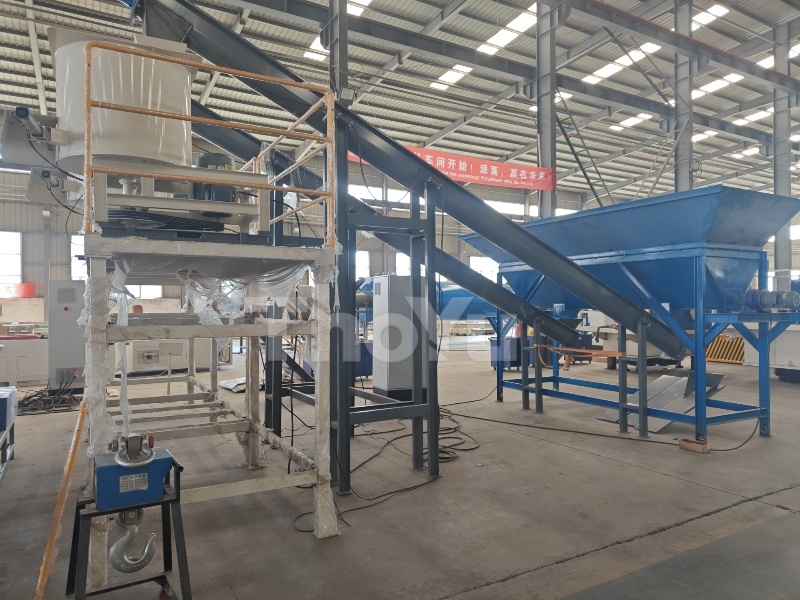When equipment prices reach hundreds of thousands or even millions, purchasing equipment becomes a critical decision. If issues such as poor usability, subpar quality, or mismatches with production requirements are only exposed after the equipment is put into use, the company will face immeasurable losses.
At this point, the importance of the trial operation phase becomes evident. It provides the company with an opportunity for verification and evaluation, effectively helping to reduce risks and make more informed investment decisions.
ThoYu deeply understands the significant importance of trial operations for both customers and itself. Therefore, it has meticulously developed a scientific, standardized, and transparent trial operation process aimed at comprehensively showcasing the exceptional performance of the equipment from multiple perspectives, providing customers with sufficient information to support their wise procurement decisions.
(1) Meticulous Preparation
Before the trial operation, ThoYu comprehensively considers various factors and meticulously prepares every detail. This includes ensuring the site is spacious and tidy, capable of accommodating the equipment and facilitating operation and observation; ensuring stable power supply that meets the equipment’s power requirements; and providing a pure gas source with stable pressure to guarantee the normal operation of the equipment’s pneumatic components. Simultaneously, Tuoyu’s professional team will conduct an exact 1:1 layout restoration of the customer’s production site based on on-site survey data.
(The engineer conducted on-site measurements in a client’s factory in the Philippines)
(Preparing for the equipment trial for a customer in Bulgaria)
(2) Standalone Testing
The equipment will operate independently without loading materials to check whether basic functions are normal, such as the startup, shutdown, and smooth operation of various components. Through a standalone “dry run,” potential issues that may arise during the manufacturing and assembly processes, such as loose or worn parts, incorrect circuit connections, etc., can be promptly identified, repaired, and adjusted.
(3) Coordinated Linkage
The “no-load” linkage operation is a critical step in simulating the complete production process, aimed at testing the collaborative operation capabilities among equipment such as feeding carts, glue mixers, paving equipment, and hydraulic presses. During this process, the focus is on verifying the automatic control and safety interlock mechanisms of the entire workflow: “material request – material receipt – transportation – material release – return.”
(4) Material Debugging and Precise Optimization
Material debugging is the core link of the trial operation. At this stage, actual materials provided by the customer are used. By optimizing the design of the feeding system and control algorithms, it ensures that materials can be supplied evenly and stably. Through precise adjustments to the four major process parameters—”material, temperature, pressure, and time”—the optimal solution for producing qualified products is thoroughly explored.
For example, for raw materials of different qualities, the mixing ratio and time of the adhesive are adjusted to ensure the bonding effect of the materials. According to the thickness and strength requirements of the product, the temperature, pressure, and time during pressing are precisely controlled to ensure stable product quality. During the debugging process, Tuoyu also focuses on resolving potential issues such as material shortage or mold sticking.
(5) Interactive Experience and In-Depth Perception
Professional engineers operate the equipment on-site and provide detailed explanations of the key technical highlights and operational essentials. At the same time, customers can also operate the equipment themselves to personally experience the human-machine interaction performance and operational convenience of the equipment. Throughout the interaction, ThoYu’s business team will accompany the customers at all times, ready to answer any questions and provide professional technical consultation and suggestions.
Post time: Oct-23-2025





